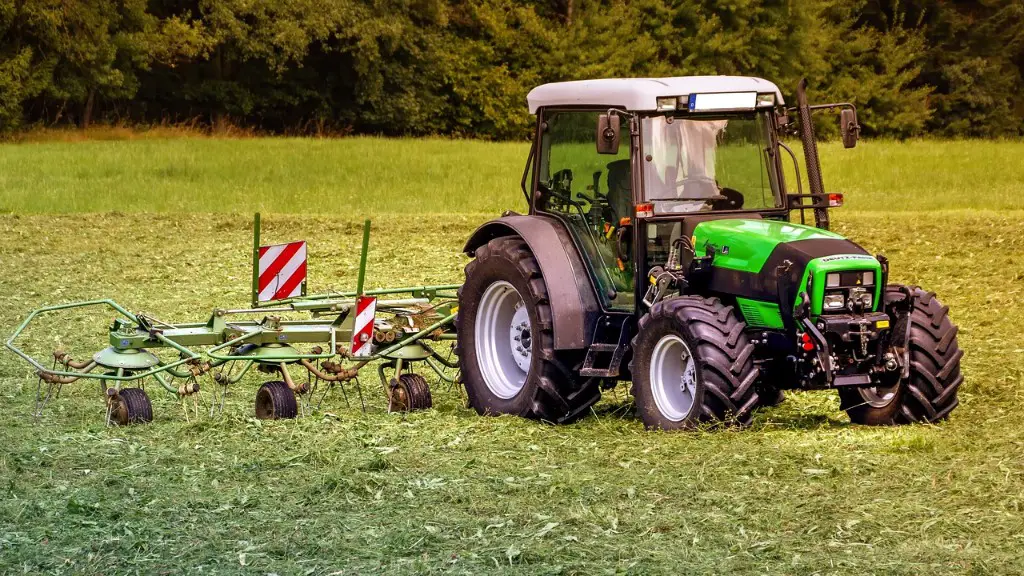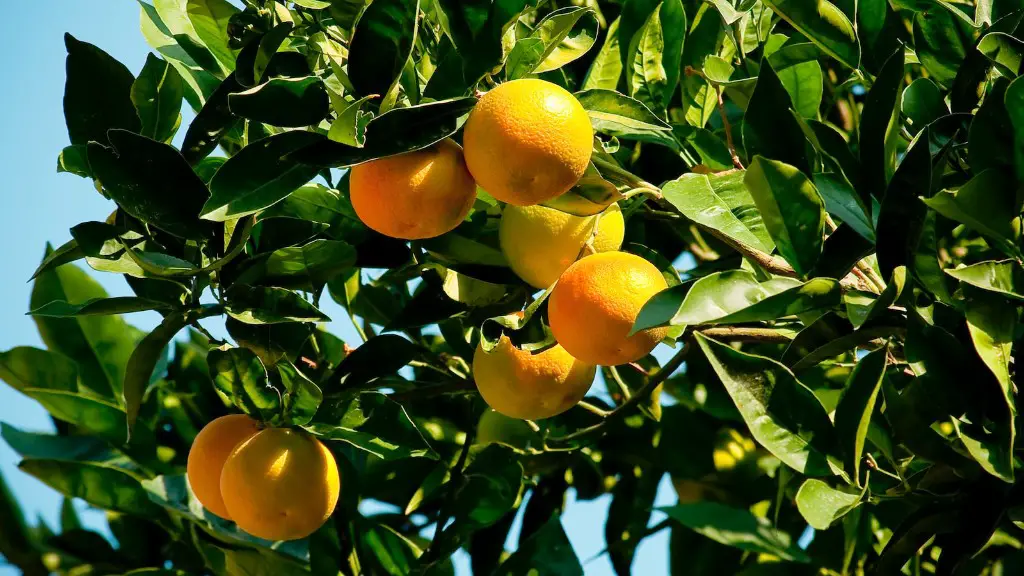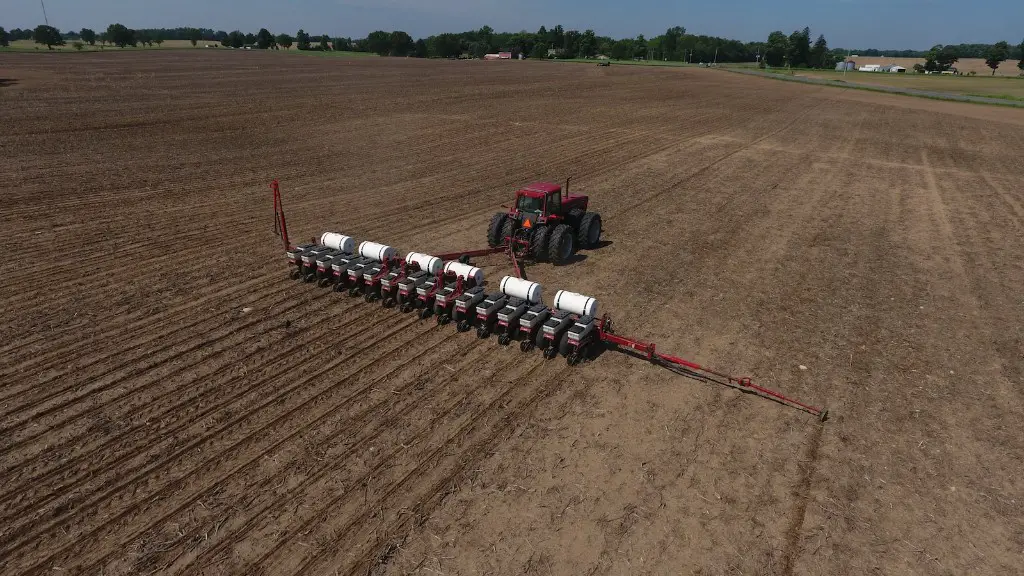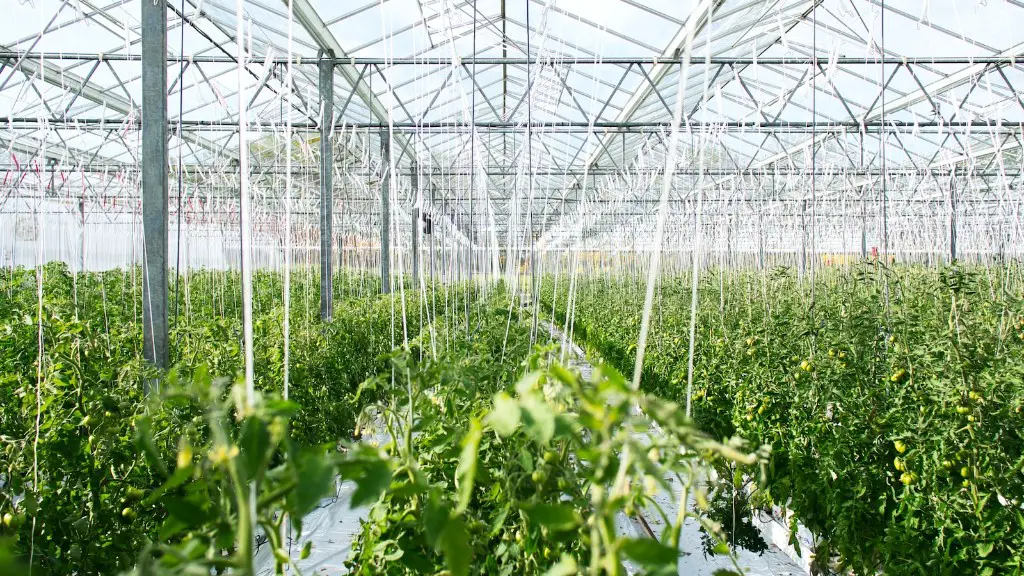Food production in agriculture involves the cultivation, harvesting and processing of food from land-based sources. It is an important part of the global food system, and involves many countries, organizations and businesses. The success of food production depends on a range of factors, including availability of land and resources, access to technologies and inputs, and the ability to manage climate and weather events. In order to meet a growing global population, food production must be efficient, sustainable and resilient.
Agriculture is the basis of food production, and involves a range of activities such as planting, irrigating, fertilizing, harvesting and processing. Food production relies on a range of inputs including land, water, labour, machinery and technology. There are several approaches to food production, such as using traditional methods, or modern technology-based systems. The choice of approach depends largely on the resources available, and the desired yield.
Soil management is an important part of food production. Agricultural land needs to be managed to ensure it is productive and resilient to environmental stresses. This includes managing the soil’s organic matter and fertility levels, and preventing erosion. It also involves controlling weeds, pests and disease, as well as ensuring efficient water use. In addition, maintaining soil ecology by incorporating organic matter, compost and crop rotation can help promote healthy soil and food production.
Food production involves a number of complex processes. For example, selecting the right crop and cultivar, calculating fertilization requirements, deciding the best timing for planting, irrigating, weeding and harvesting. Additionally, the harvesting and post-harvesting processes will involve sorting, grading, storing and packaging the crops. All of these processes need to be managed efficiently to ensure optimal output and quality.
In order to ensure food production is sustainable, it must be managed using practices that will reduce the environmental impact of activities like water use, chemical use and soil degradation. Additionally, waste management, recycling, and efficient use of inputs must be adopted to minimize environmental impacts. Furthermore, agro-ecological principles should be used to ensure that natural resources are used responsibly, and that ecosystems are managed sustainably.
The Role of Technology in Food Production
In recent years, technology has been an important tool in improving efficiency and productivity in food production. Technologies such as precision agriculture, drones, artificial intelligence and robotics can help reduce the amount of labour, land and water required for food production. By using these technologies, inputs can be precisely managed to increase yields and reduce costs.
In addition to this, technology can be used to facilitate traceability of food production. With traceability, the origin and production methods of food can be tracked from farm to table, helping to ensure food safety and quality. Traceability also helps to create transparency and trust between buyers and producers.
Technology can also be used to monitor weather conditions, soil quality and crop diseases. This allows farmers to take appropriate actions, such as irrigating plants, avoiding waterlogging of soils or managing crop diseases to ensure optimal yields. Furthermore, advances in agricultural technology are helping farmers to adapt to changes in climate and weather patterns, and to mitigate the effects of extreme weather events.
The Impact of Climate Change on Food Production
Climate change is having a major impact on food production, affecting the availability of resources, the amount of crops produced and the quality of produce. Global warming has led to an increase in temperatures, shifting weather patterns and extreme weather events. This can lead to crop failures, lower yields and reduced quality of food. Additionally, it can lead to changes in soil quality, reducing fertility and affecting the ability of soils to store water, leading to flooding and drought.
Furthermore, rising temperatures can lead to increased pests and diseases, decreasing crop yields and affecting the quality of food production. As a result, it is essential for food producers to adapt to these changes and develop ways to mitigate their effects. This could include changing planting times, incorporating climate-smart technologies, changing crop varieties and improving soil quality.
The Role of Government in Food Production
Governments have an important role to play in ensuring food production is managed sustainably and that the global food system is equitable. Governments can provide the resources and technical support to help farmers access technology and inputs, such as improved seed varieties and fertilisers. They can also facilitate access to markets and establish regulations to ensure food safety, quality and sustainability.
Governments can also incentivise sustainable agricultural practices. This could include subsidies, grants or loans. Additionally, governments can invest in research and development to increase the efficiency of food production and reduce the environmental impact. Finally, governments can invest in education and training to help farmers and food producers adopt more sustainable practices.
The Role of Global Policies in Food Production
Global policies and initiatives can help shape food production and make it more sustainable. Examples of this include voluntary agreements and standards, such as the Sustainable Agriculture Initiative (SAI) and the Sustainable Development Goals (SDGs). These initiatives aim to promote sustainable agricultural practices, such as reducing the environmental impacts of food production and promoting food safety and quality.
In addition, international bodies such as the World Trade Organisation (WTO) and Food and Agriculture Organisation (FAO) have developed international trade agreements and standards. These are designed to ensure food production is managed sustainably and that the global food system is equitable. Furthermore, the WTO limits agricultural trade subsidies and tariffs that could distort markets and reduce prices for farmers.
Public Participation in Food Production
Public participation is a key factor in ensuring food production systems are sustainable. By engaging the public, it is possible to create more holistic and inclusive approaches to food production. Through public dialogue, it is possible to identify, discuss and address social, economic and environmental issues. This could include engaging local communities in decision-making, engaging in education and awareness-raising initiatives, and sharing knowledge and experience.
In addition, public engagement can help to build trust in the food production system, and promote transparency. This can help to ensure the food produced is of high quality and safe to consume. Finally, public participation can also help to identify and address inequalities in the food system and ensure equitable access to resources.




